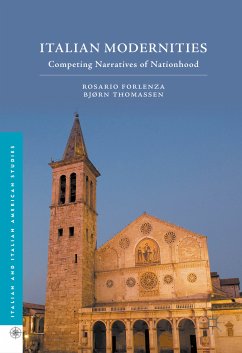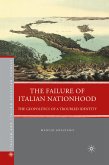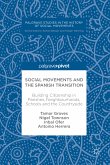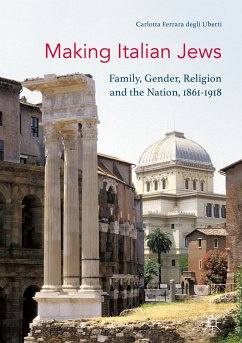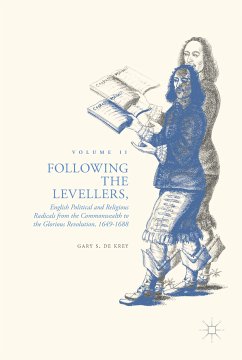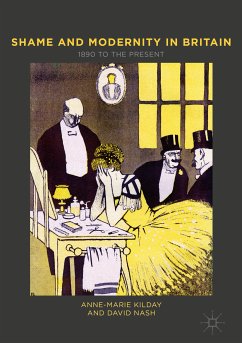Dieser Download kann aus rechtlichen Gründen nur mit Rechnungsadresse in A, B, BG, CY, CZ, D, DK, EW, E, FIN, F, GR, HR, H, IRL, I, LT, L, LR, M, NL, PL, P, R, S, SLO, SK ausgeliefert werden.
"Through the prism of modernity, this book seeks to provide an engaged narrative of the history of united Italy ... The authors, Rosario Forlenza and Bjørn Thomassen, have extended their scope to include political and literary approaches that were defeated, or left unfinished. In doing so, they allow the reader to reflect on the words, expectations and reflections of contemporaries." (Claudia Baldoli, English Historical Review HER, September, 2018)
"It provides the reader with an overview of the development of the concept of modernity in Italy, bringing together the ideas of some of Italy's most important intellectuals. ... Italian Modernities represents a rich account of the evolution of the concept of modernity in Italy, bringing together and re-elaborating canonical authors in Italian theory." (Enrico Zammarchi, Italian Studies, Vol. 73 (02), March, 2018)
"Forlenza and Thomassen have produced a thoroughly useful overview of modern Italian history, structured around different conceptions of modernity that are likely to remain controversial in the future. Their book will be invaluable for students and specialists in Italian history and culture, together with specialists in development who may want to look at Italy in broader comparative studies. They show beyond doubt that we all have a great deal to gain from properly multidisciplinary perspectives." (Bruce Haddock, Journal of Modern Italian Studies, Vol. 22 (5), November, 2017)
"This wide-ranging volume offers a broad analysis of how competing ideologies within modern Italy 'formulated multiple and often antagonistic visions of modernity' ... a valuable addition to modern Italian political history, and, given the breadth of its coverage, has particular potential to be used as a set text for undergraduate courses on Italian politics and political thinking." (Selena Daly, Modern Italy, Vol. 23 (01), September, 2017)
"Forlenza and Thomassen have recounted the main themes running through modern Italian history from post-unification to the present, summarizing admirably the most important intellectual debates, and showing how every current of thinkers effectively created an original tradition of thought, at once specifically Italian and modern. ... Forlenza and Thomassen's study is an important contribution, which will be of immense benefit to both historians and social and political analysts of modern and contemporary Italy." (Enrico Dal Lago, European History Quarterly, Vol. 47 (4), 2017)

